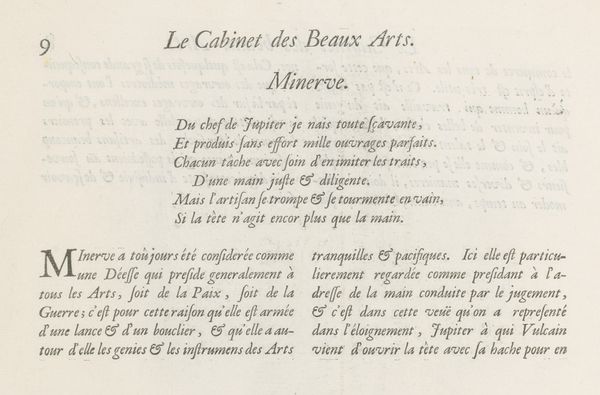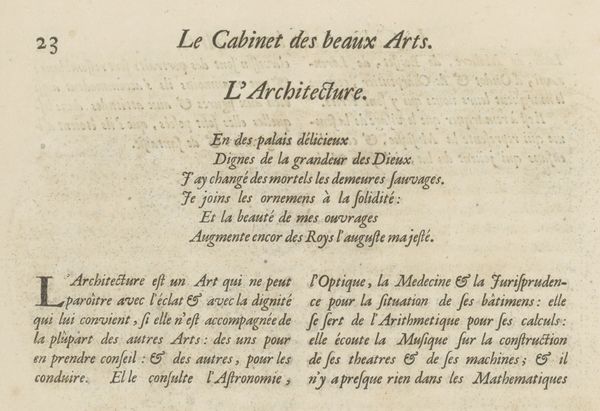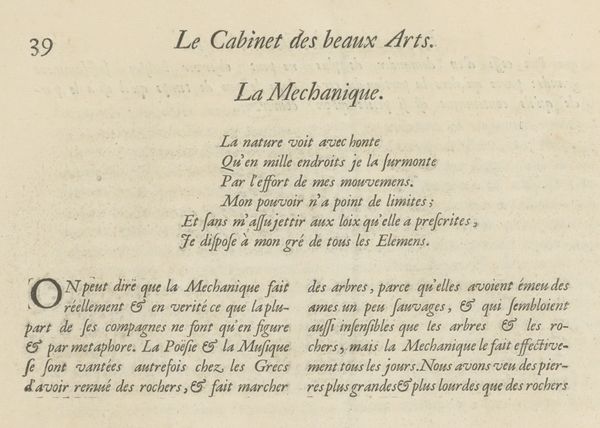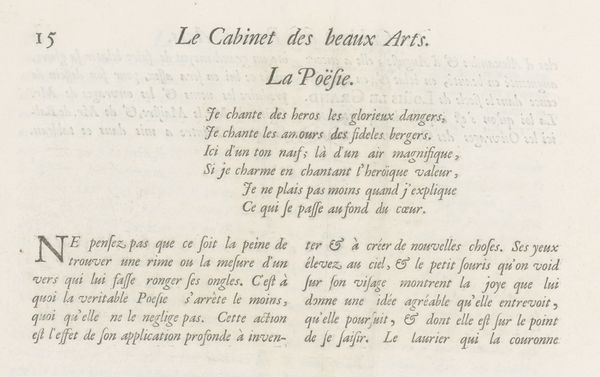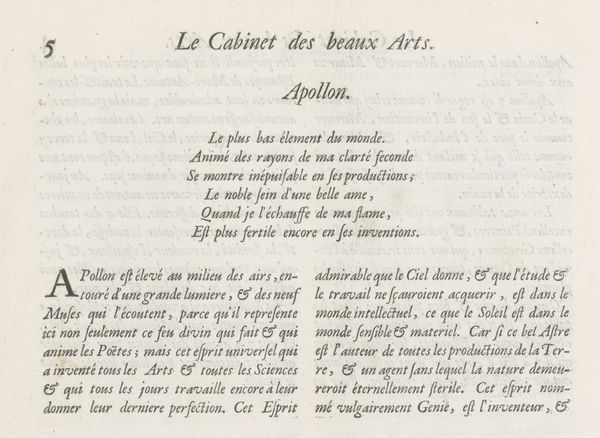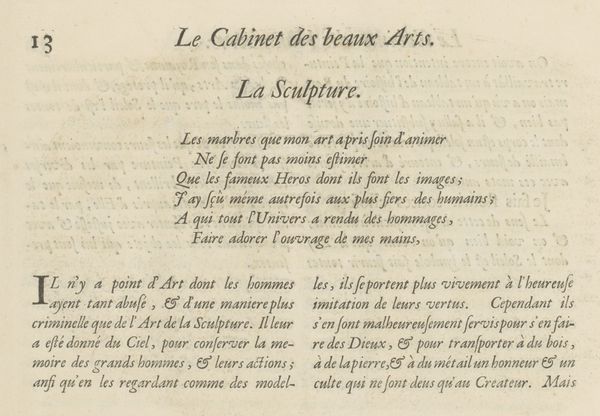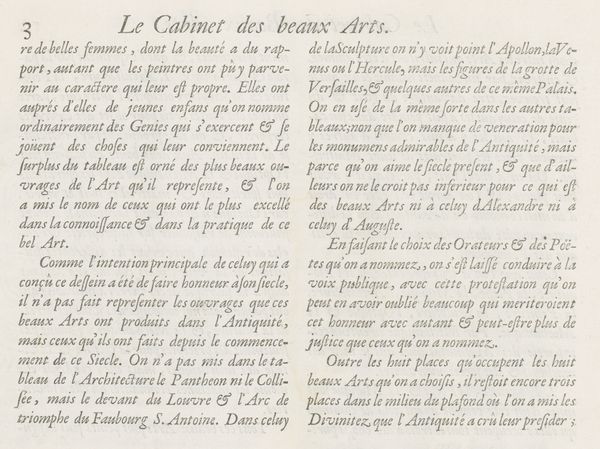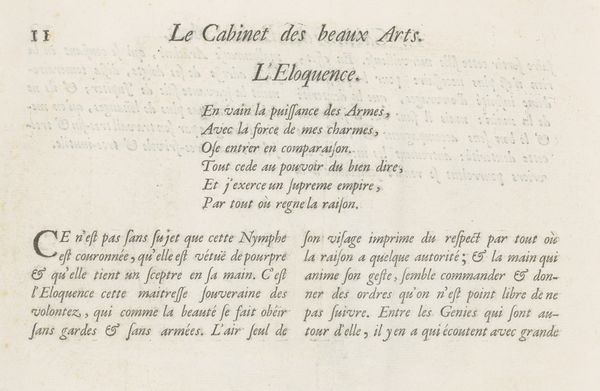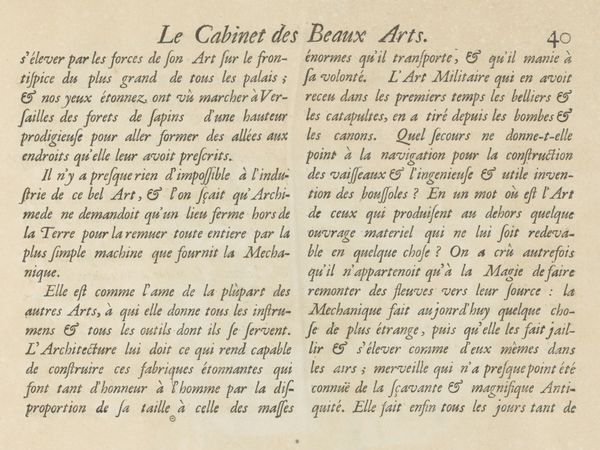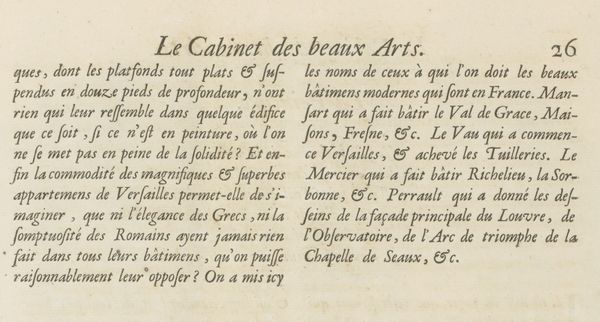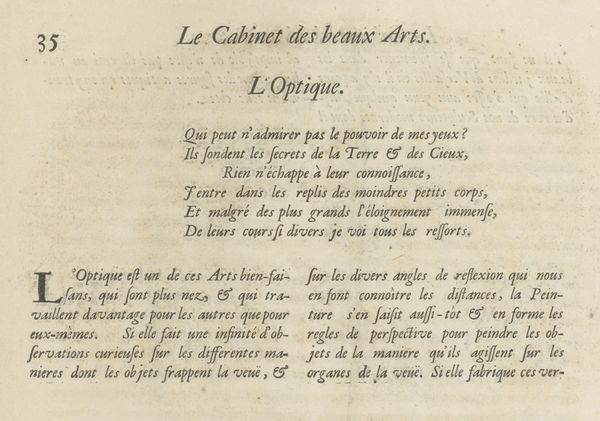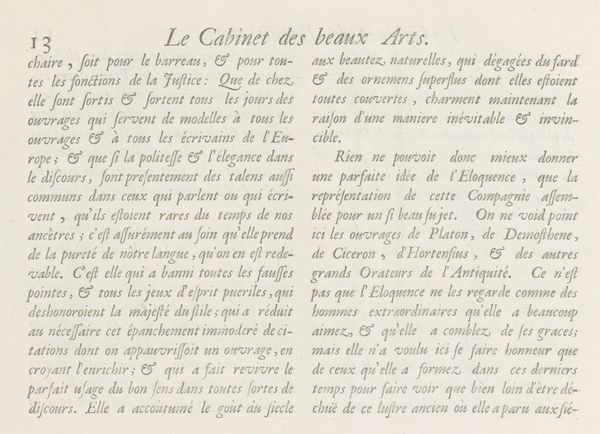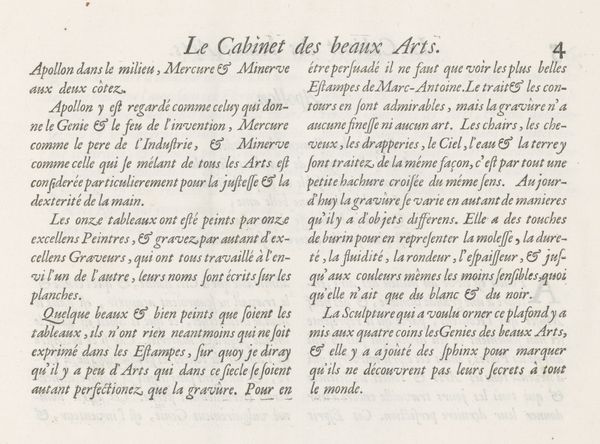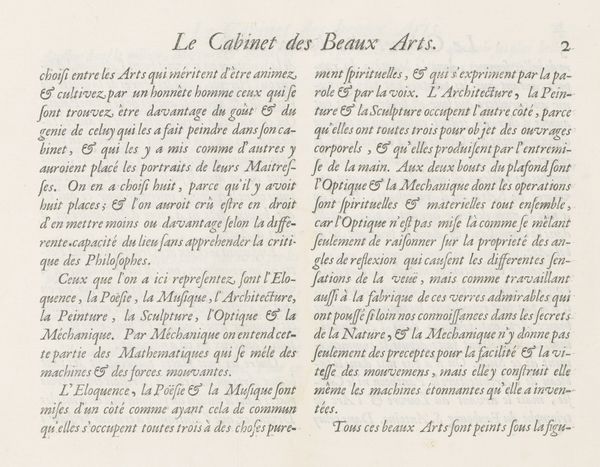
print, paper, typography
#
hand written
#
hand-lettering
# print
#
hand drawn type
#
hand lettering
#
paper
#
text
#
typography
#
hand-written
#
hand-drawn typeface
#
fading type
#
stylized text
#
handwritten font
#
calligraphy
#
small lettering
Dimensions: height 281 mm, width 380 mm
Copyright: Rijks Museum: Open Domain
Editor: This is "Tekstblad met verklaring van de prent over Muziek, p. 19," a print from 1695 by Charles Perrault. The typography is quite striking. What captures your attention when you look at this, in terms of the making? Curator: Well, consider the means of production. This isn't just about the beautiful script, but the entire process. This text wasn't casually scribbled; it was meticulously planned and executed as a print, likely using engraving. How many copies were produced, by whom, and for what audience? It moves beyond mere aesthetics to a question of labor and accessibility. What class of people were both the producers, the distributors, and ultimately the audience for such printed material in 1695? Editor: So you are saying, to look beyond just the visual pleasure it brings, and ask questions about its life as an object, how it was made, and distributed? How does focusing on these things change the way we appreciate it? Curator: Precisely! We must remember paper in the 17th century wasn't as easily accessible as it is now. We are really considering value and use. The value placed on musical expression through printed matter becomes evident. It prompts us to consider who had access to such refined commentary, further deepening our understanding of the social and economic context. Editor: I hadn't really thought of it in those terms, more in terms of just what the letters looked like but what you are describing changes my perspective. I suppose analyzing production methods allows us to appreciate it as more than just pretty writing. Curator: Exactly. By dissecting the production, distribution and consumption, it reframes our engagement with this piece, shifting focus from the individual artistry of Perrault towards the cultural context that birthed it.
Comments
No comments
Be the first to comment and join the conversation on the ultimate creative platform.
